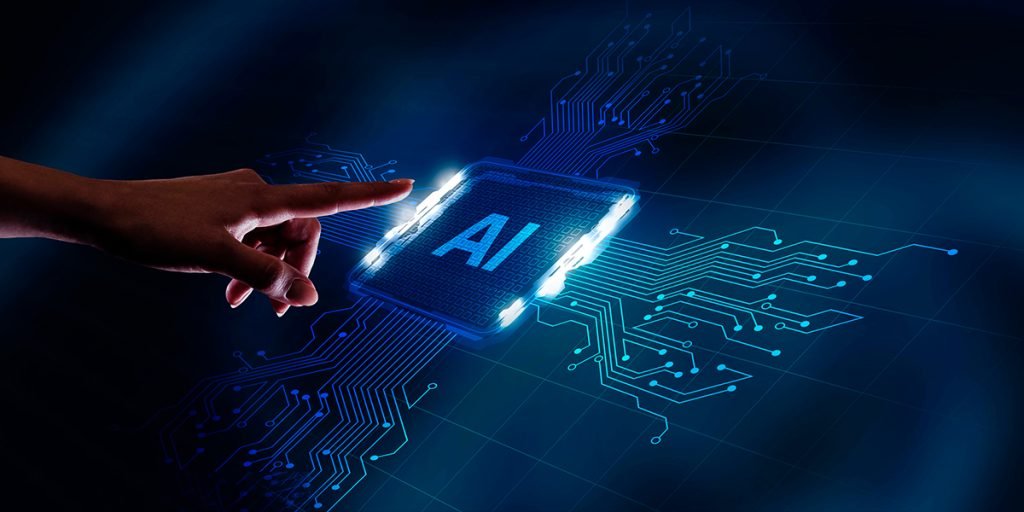
The rapid advancement in Artificial Intelligence (AI) has ushered in a transformative era, with AI systems now integral to various industries ranging from healthcare to finance, and even creative fields. The global AI market, already on an exponential growth trajectory, is expected to burgeon further by 2033. In this exploration of AI’s uncharted domains, we will not only look at the projected expansion of the AI market but also the emerging sectors likely to be revolutionized by AI innovations. We will leverage the keyword “Artificial Intelligence” to delve into the multifaceted implications and opportunities that await.
The Current Landscape
As of today, Artificial Intelligence has made significant strides in automating tasks, enhancing data analytics, and facilitating decision-making processes. The AI market is diverse, encompassing machine learning algorithms, AI software, and cognitive computing, to name a few. Businesses are increasingly incorporating AI to streamline operations, personalize customer experiences, and innovate product offerings.
Predicting the Market Expansion
By 2033, the AI market is expected to have penetrated industries that are today in nascent stages of AI adoption. Predictions indicate that sectors such as space exploration, deep-sea mining, and advanced materials development will heavily rely on AI for exploration, automation, and complex problem-solving. Additionally, traditional sectors like agriculture and manufacturing will witness a further AI-driven metamorphosis, optimizing food production and supply chain logistics through smart AI systems.
Uncharted Domains for AI
The expansion of the AI market by 2033 will likely see AI systems at the forefront of addressing climate change, with predictive models aiding in disaster readiness and mitigation strategies. In healthcare, personalized medicine powered by AI will become more sophisticated, potentially revolutionizing treatments for diseases that are today considered incurable.
The entertainment industry will experience an AI renaissance, with AI-generated content becoming more prevalent, raising questions about creativity and originality. Education will see AI tailor learning experiences to individual student needs, potentially equalizing educational opportunities across the globe.
Challenges and Ethical Considerations
With great power comes great responsibility, and the expansion of AI is no exception. Ethical considerations, such as the implications of AI on employment and privacy, will need to be addressed. As AI systems become more autonomous, the development of ethical frameworks and regulations will be crucial to ensure that AI benefits society as a whole.
Artificial Intelligence as a Collaborative Tool
By 2033, AI is predicted to transition from a tool that replaces human effort to one that augments it. Collaborative AI will empower humans to achieve more by taking on repetitive and hazardous tasks, allowing humans to focus on creative and strategic activities. This symbiosis could lead to an era of unprecedented innovation and productivity.
The current landscape of AI is just the tip of the iceberg, and its potential remains vastly untapped. By 2033, we can expect AI to have advanced to a stage where its capabilities are deeply integrated into the fabric of society. In this post, we’ll add another layer to our discussion by considering the interdisciplinary collaborations that AI will foster and the global market dynamics it will influence.
Interdisciplinary Collaborations and AI
The future of AI lies in its ability to merge with other cutting-edge technologies, leading to interdisciplinary advancements. For instance, the integration of AI with quantum computing could solve complex calculations in seconds, disrupting fields like cryptography and leading to breakthroughs in secure communications. In biotechnology, AI’s ability to analyze vast datasets will accelerate gene editing research, with CRISPR technology becoming more precise and accessible, potentially eradicating genetic disorders.
Global Market Dynamics
As AI transcends borders, the global market will see a shift in economic power dynamics. Developing nations with a focus on AI education and infrastructure could leapfrog into leadership positions by harnessing AI for economic development. The global workforce will also transform, with AI literacy becoming as fundamental as digital literacy is today. This shift will necessitate a reimagining of education systems worldwide to prepare the next generation for an AI-centric economy.
The impact of AI on global trade and international relations will be profound. AI-driven supply chain optimization could lead to more efficient global trade networks, while AI in defense systems will raise the stakes in national security. International policies and agreements will need to evolve to address the deployment and governance of AI technologies on a global scale.
Conclusion
We’ve enriched our exploration of AI’s future impact, underscoring the importance of interdisciplinary synergy and the reshaping of global market dynamics. The expansion of the AI market by 2033 will be marked by transformative collaborations and a reshaped global economy, setting the stage for a future where AI is not only a market segment but a pivotal element in the advancement of society.


